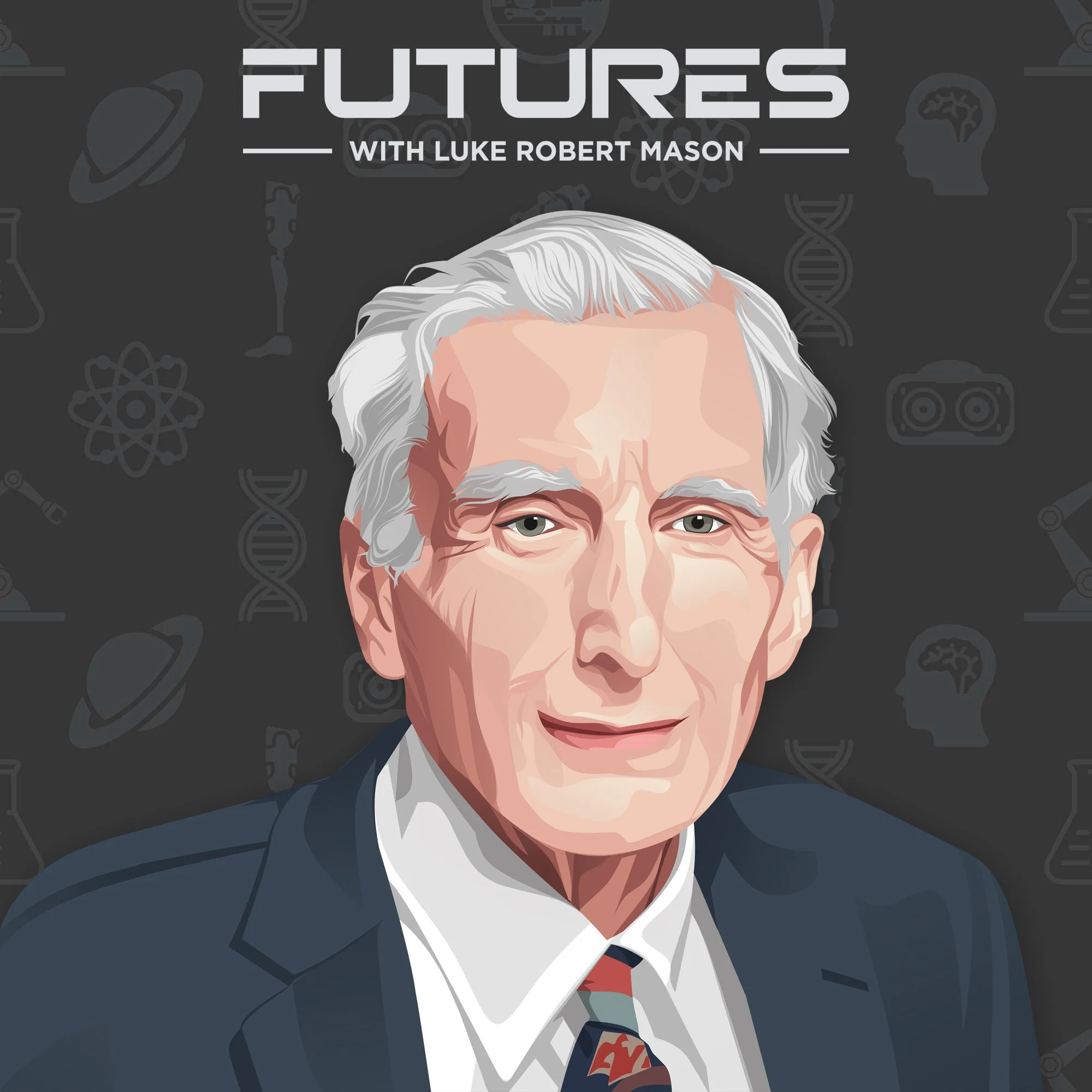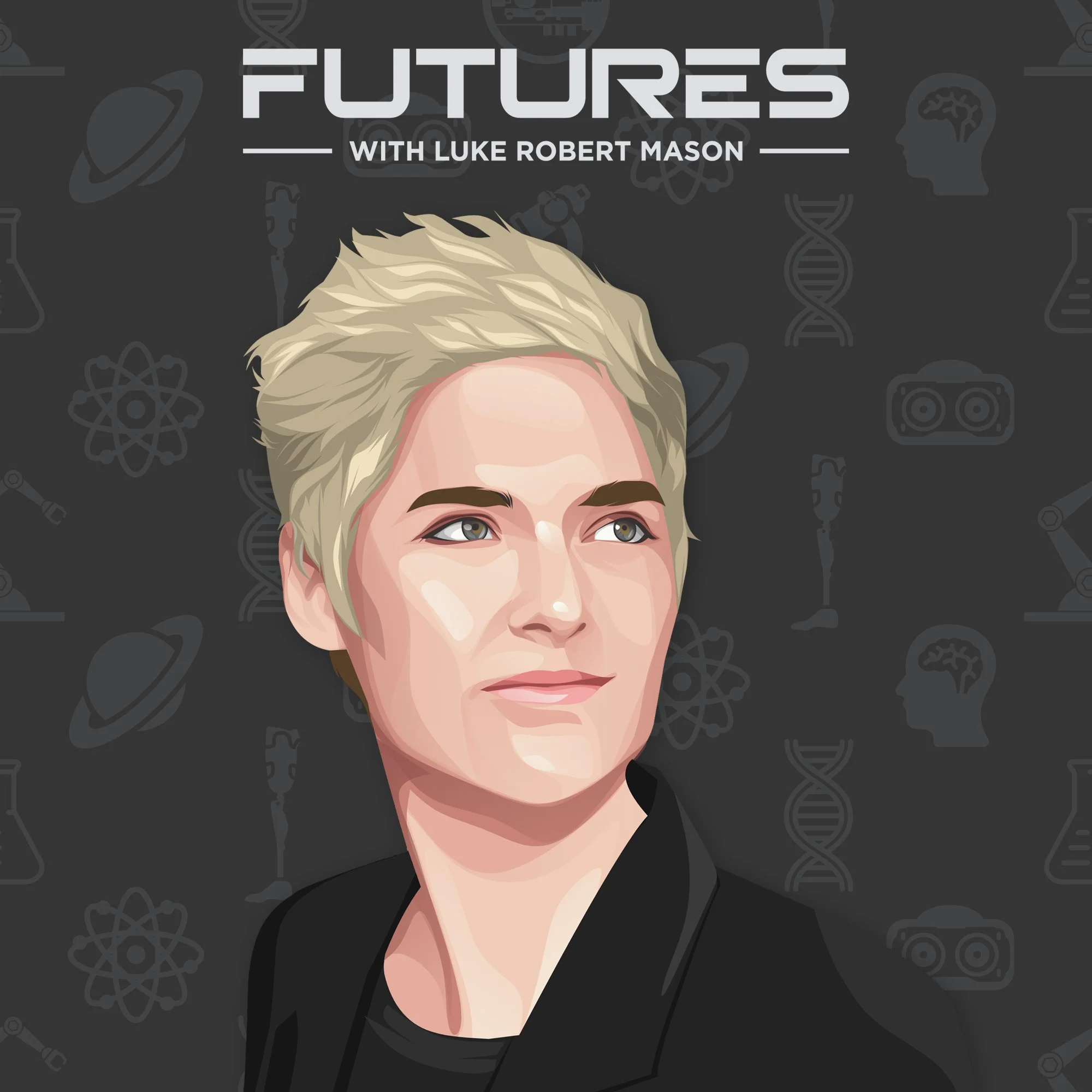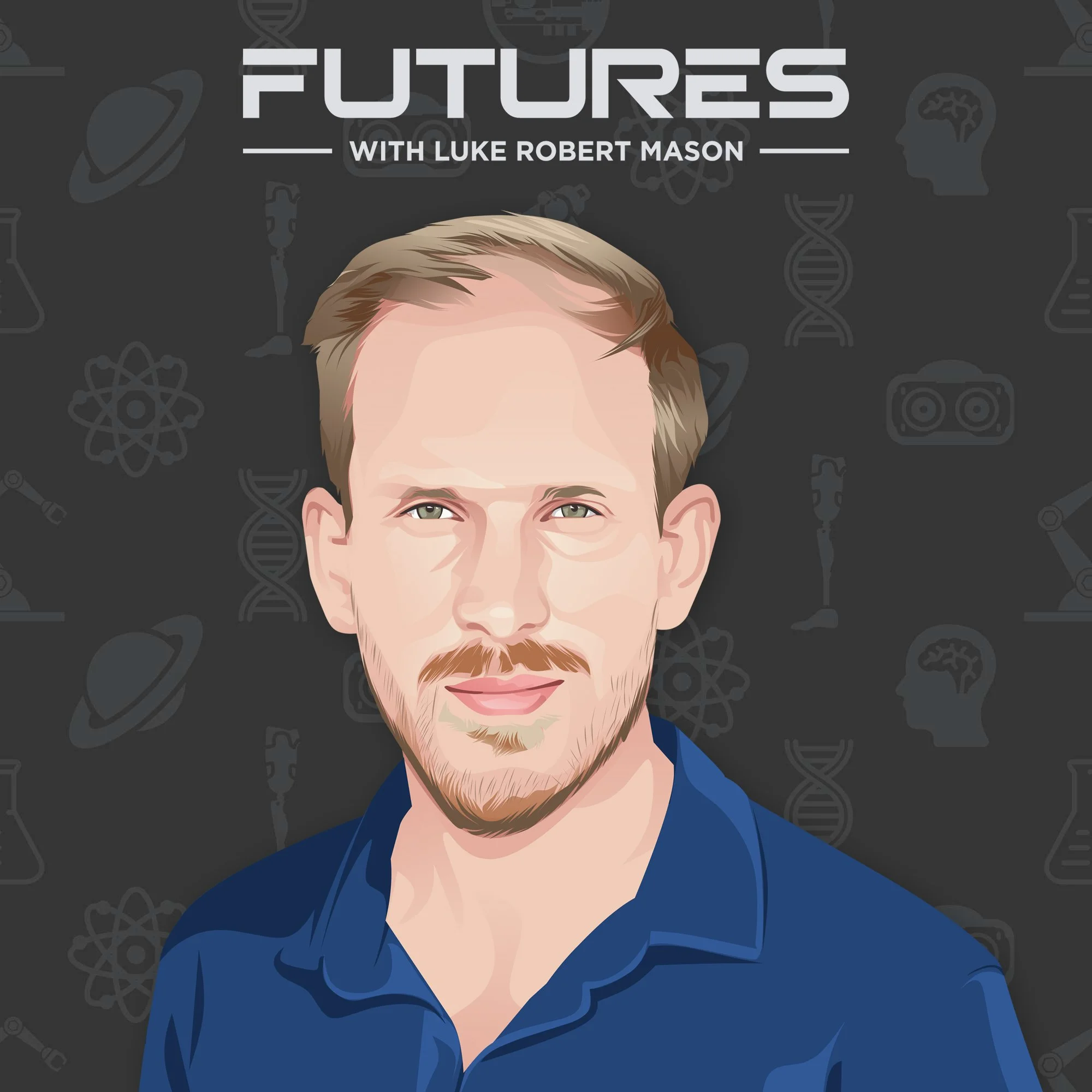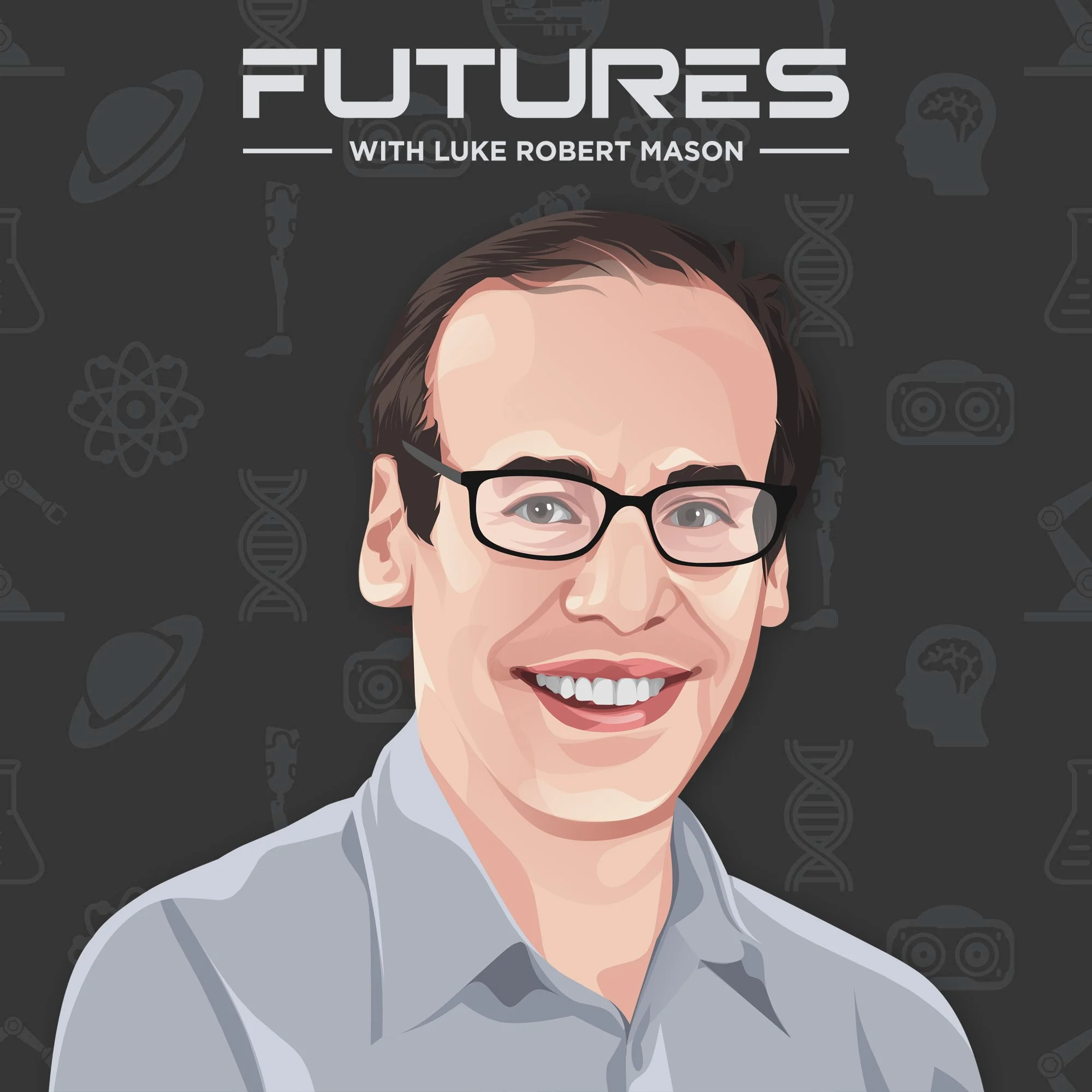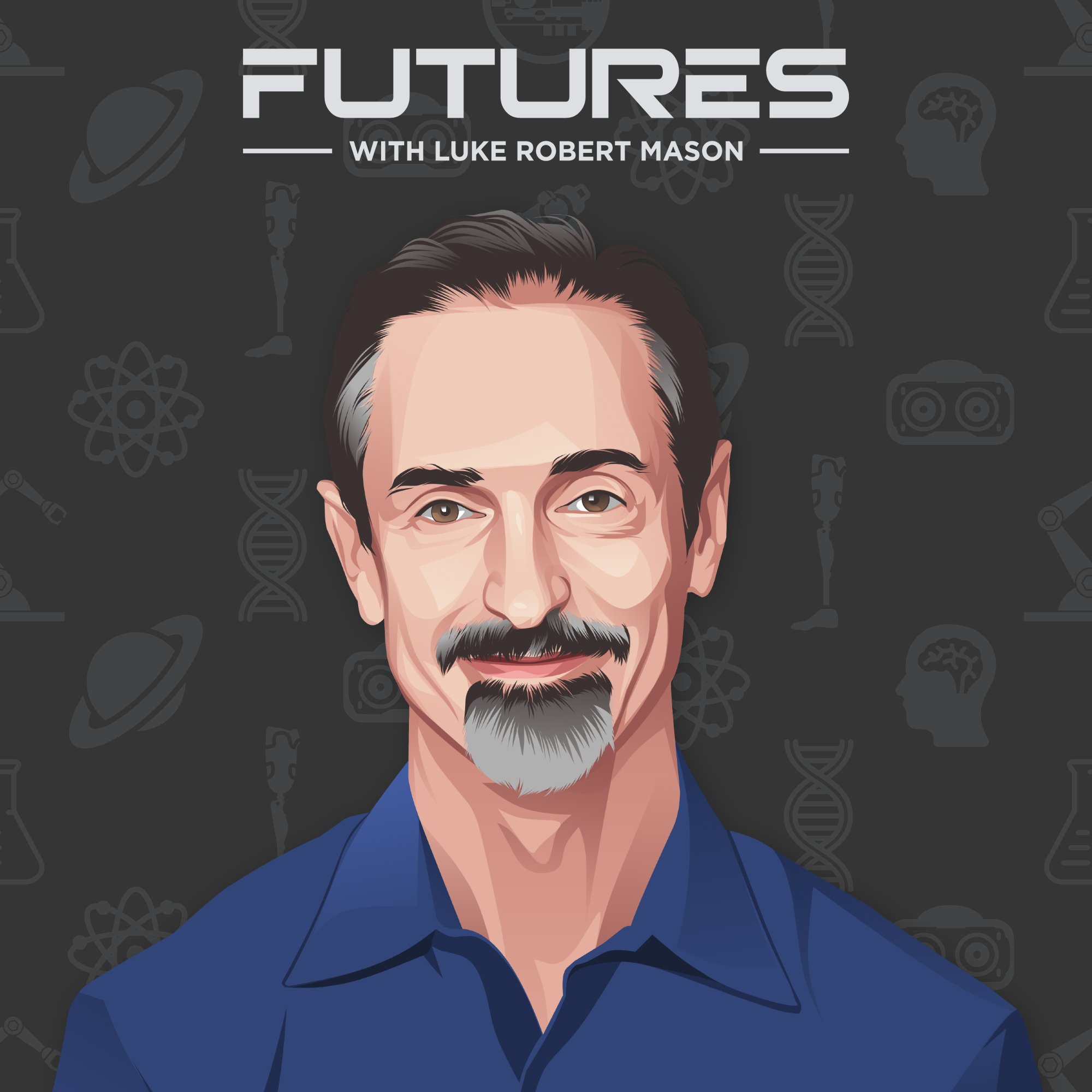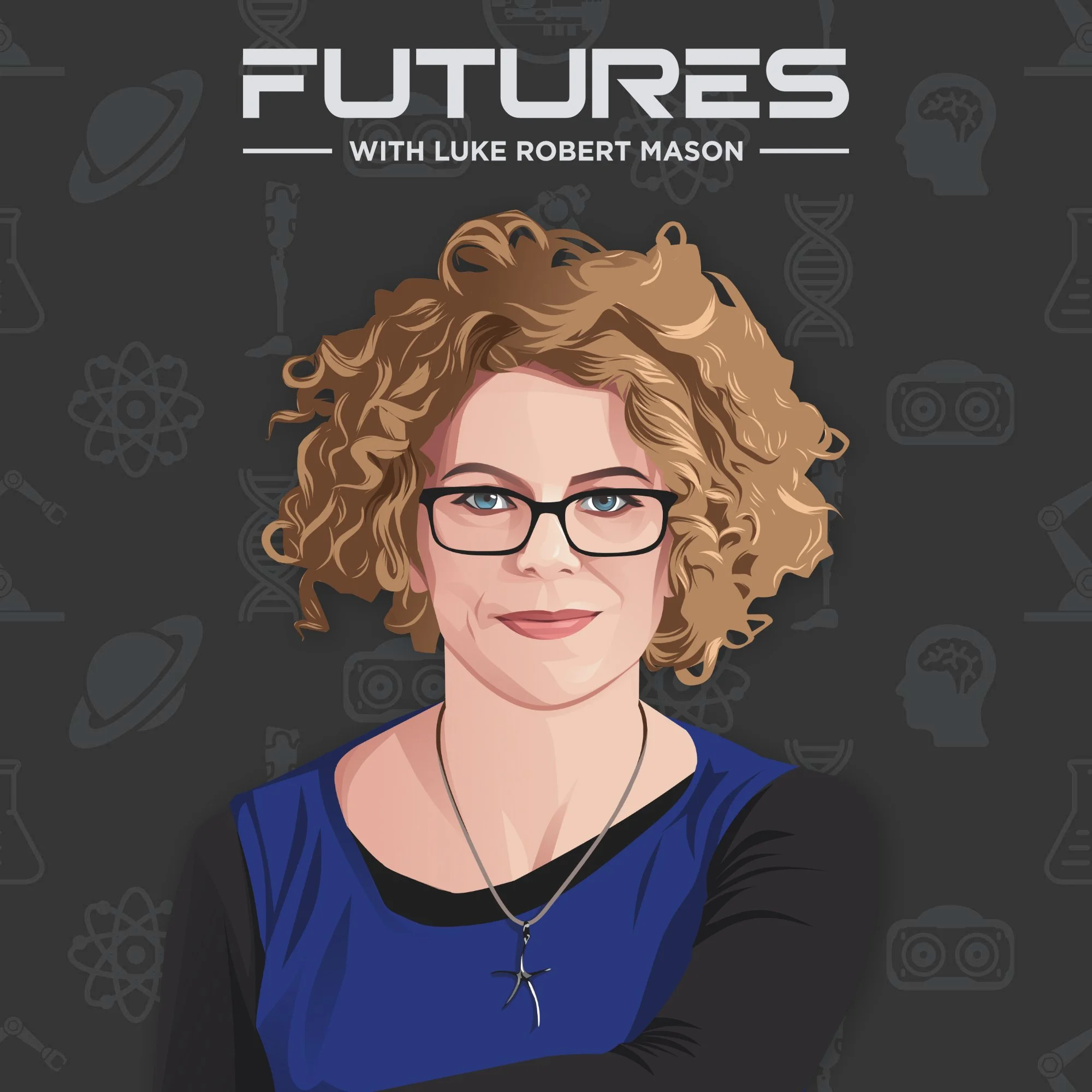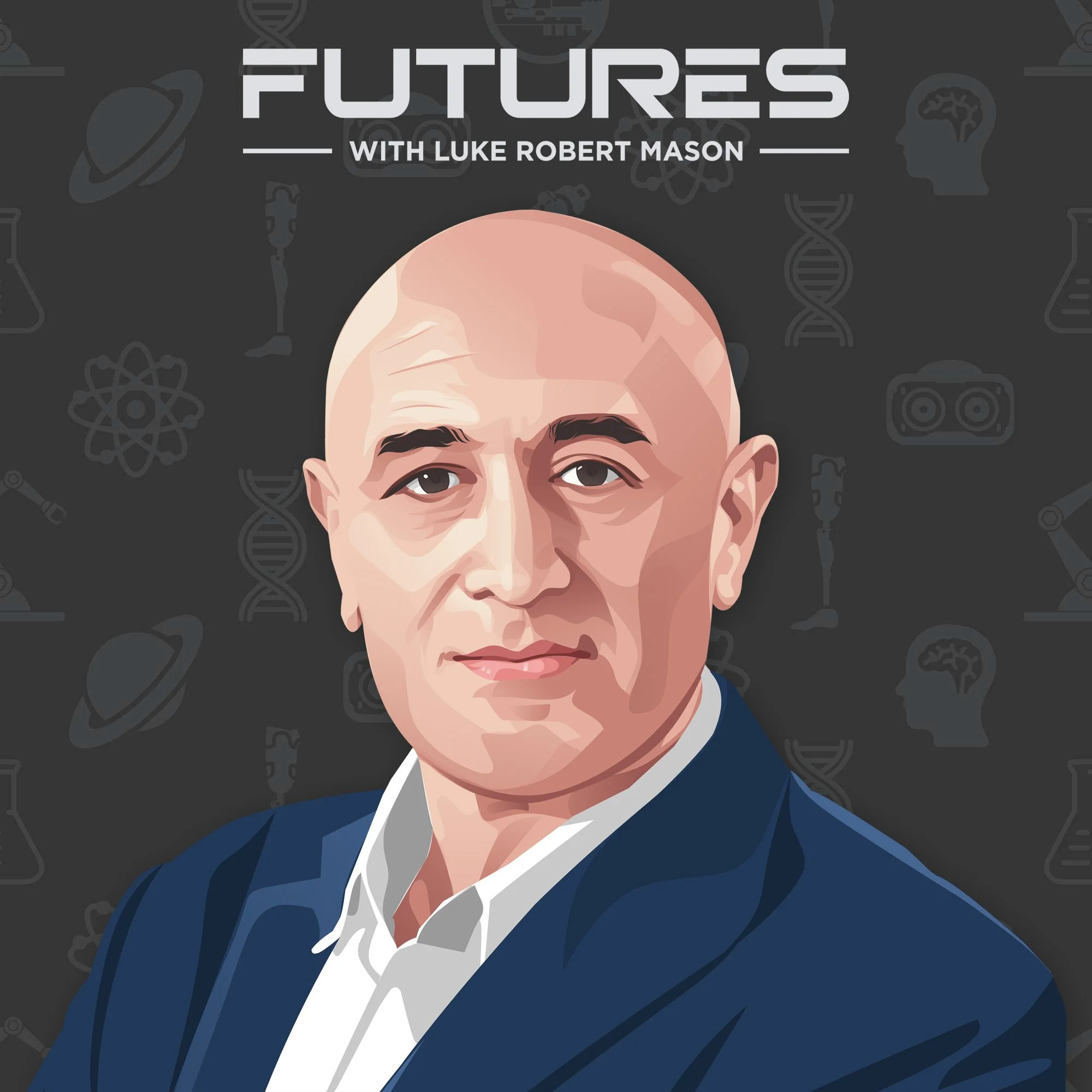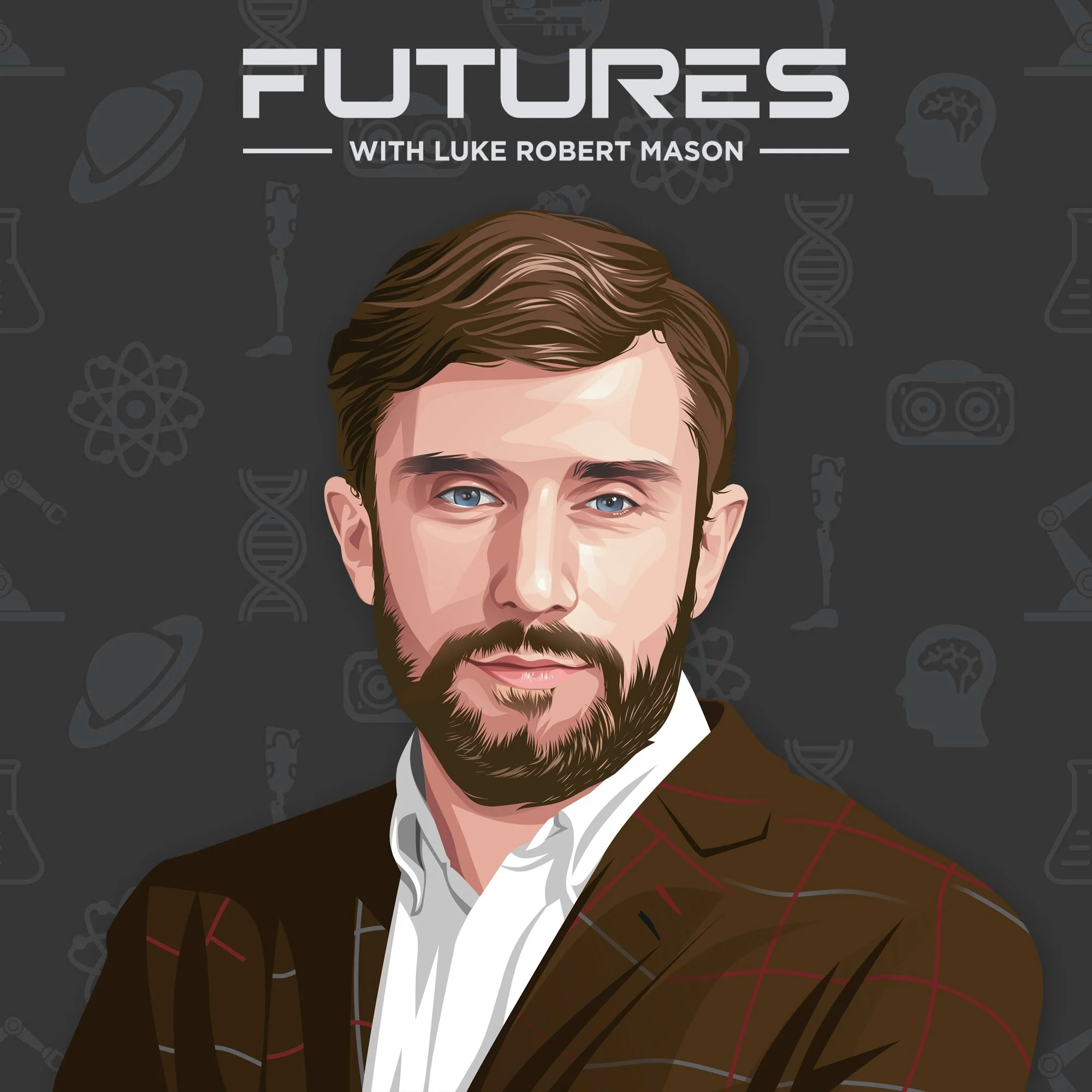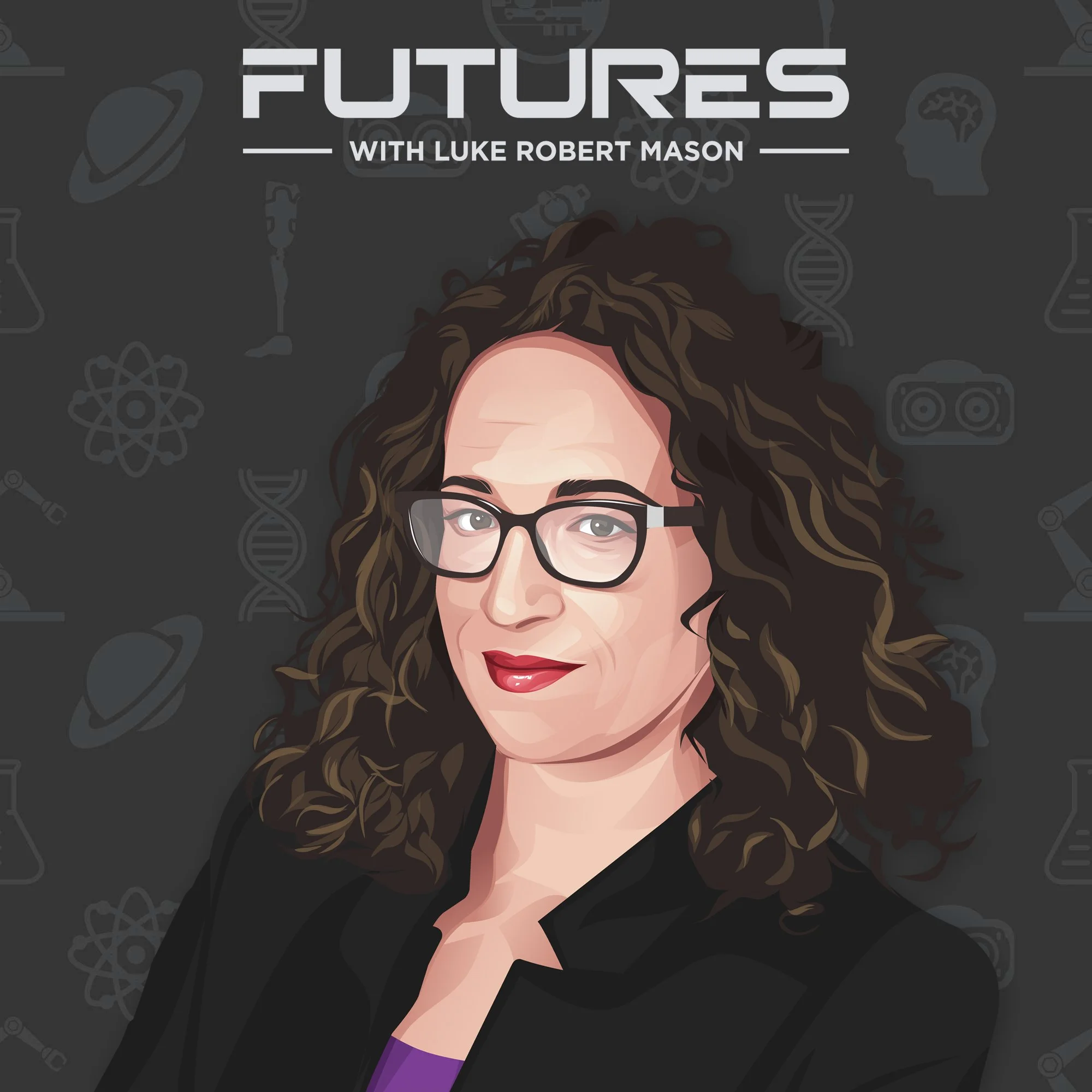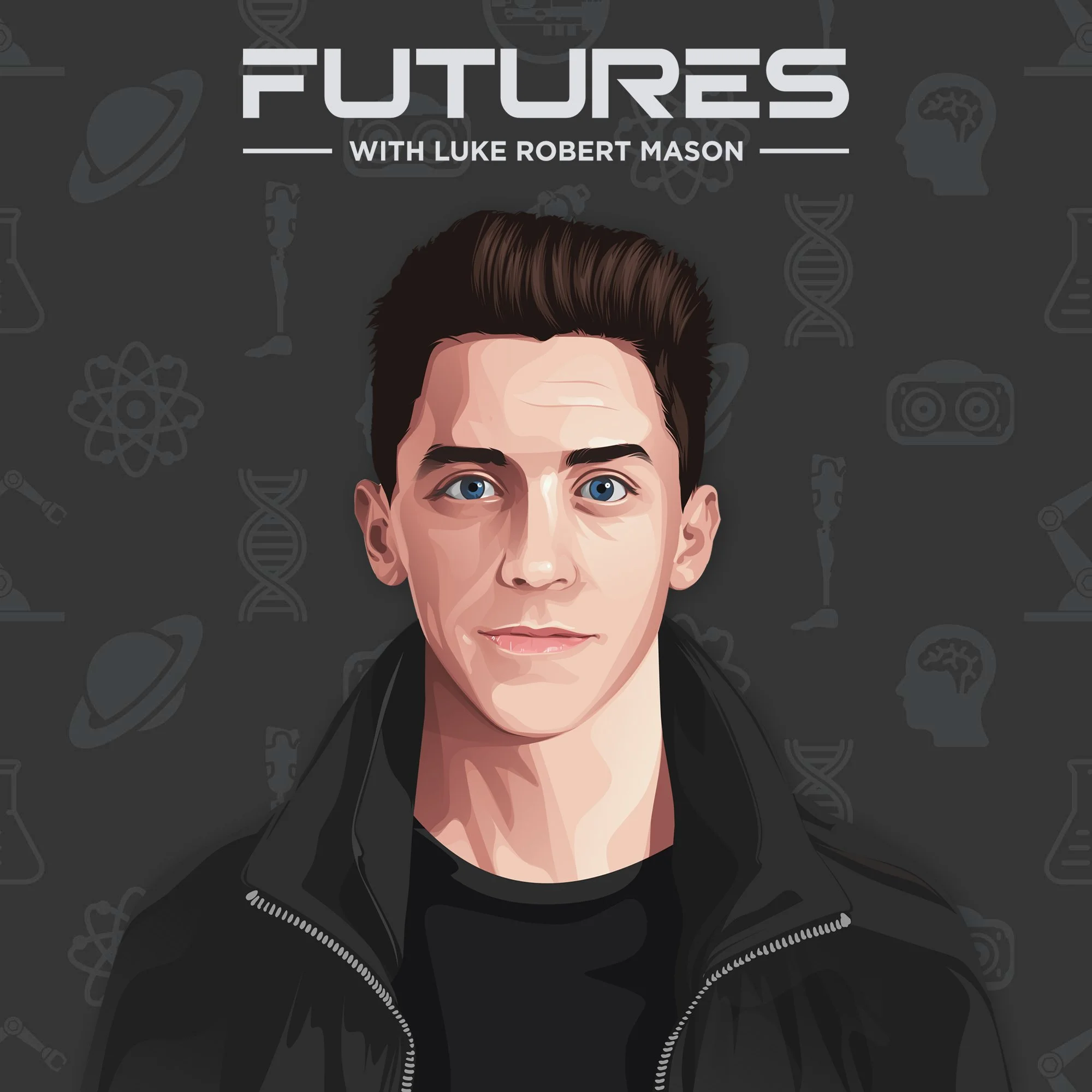FUTURES Shortcast
The FUTURES Shortcast asks you to imagine the sorts of developments that might dramatically alter what it means to be human.
Join host and futures theorist Luke Robert Mason in exploring the multitude of possible tomorrows—15 min at a time on our new Shortcast with Blinkist!
Shortcasts take a podcast episode’s key takeaways and insights, adds some fresh perspective, and then condenses them into a powerful listen of up to 15 minutes.
What Must Our Species Do to Survive?
Episode #15
Cyberattacks, pandemics, the climate crisis—the possibilities for disaster might seem endless and omnipresent. According to cosmologist and Astronomer Royal Lord Martin Rees, there’s reason to be worried—but also for hope. In this episode, you’ll learn why he considers himself both a techno-optimist and a political pessimist, and how greater public engagement might be the key to swerving extreme threats to our survival.
What is Calm Technology?
Episode #14
How much attention does your technology demand? According to cyborg anthropologist and user experience designer, Amber Case: probably too much. In this episode, you’ll learn about calm technology and how it can help address this balance.
What Does It Mean to Have a “Plastic Brain”?
Episode #13
The human brain is incredibly adaptive; every time we learn something new, whether it’s someone’s name or a mathematical formula, it physically changes. In this episode, neuroscientist David Eagleman discusses brain plasticity, how it influences our development, and in what ways scientists are using it to substitute, expand, and add to our senses.
Survival of The Fittest or The Friendliest?
Episode #12
Schools, prisons, workplaces–many institutions are designed according to the belief that we are fundamentally selfish. But are we? In this episode, historian and author Rutger Bregman discusses an alternative theory. He argues that friendliness has actually helped humans survive, and how accepting that people are decent could lead to radical change.
What Are We Willing to Risk for Humanity 2.0?
Episode #11
Mortality and limited brain function getting you down? In this episode, professor Steve Fuller discusses the risks involved in getting from Humanity 1.0 to 2.0. You’ll learn about the transhumanist movement’s hopes for the future of humankind, the ethical obstacles to getting there, and how existing models could help us overcome them.
How to Survive in Space for 30 Years?
Episode #10
Space. The best and brightest earthlings try to find innovative ways to crack its mysteries. But what about the role of maintenance? In this episode, former NASA astronaut, Kathy Sullivan, discusses how innovation and maintenance are, in fact, two sides of a coin. You’ll learn about her role in making the Hubble Space Telescope repairable and why this was key to its success.
Can AI Make Us Better Versions of Ourselves?
Episode #09
Artificial Intelligence: here to take your job, sell you stuff, and humiliate you at chess. Right? Actually, Tom Gruber, a computer scientist from the team who created Siri, would like you to put down the pitchfork and consider a few ways AI could help us all be happier, healthier, smarter, and more present. We just need to prioritize AI that collaborates, rather than competes.
What Can Science Learn From The Deep Ocean?
Episode #08
The deep ocean is full of weird and wonderful organisms like snailfish, corals, and scaly-foot snails. But what could they possibly teach us air-breathing land mammals? According to marine biologist Helen Scales: a lot. In this episode, you'll learn how these creatures from the deep are influencing advances in medicine, engineering, and deep-sea robotics.
Will We All Soon Be Cyborgs?
Episode #07
Would you like to flex a bionic arm? Communicate with just your thoughts? The world’s first cyborg, professor Kevin Warwick, explains why we should be embracing the implanted technology which could allow us to have these abilities.You’ll learn about why he thinks this shift is important and inevitable, and talks about the personal risks he's taken to test them out.
What Do We Know About Depression and the Brain?
Episode #06
The human brain is the only organ which studies itself. Maybe this lack of perspective is why it’s still such a mystery. In this episode, science writer Ginny Smith demystifies some of the biology behind a very common illness—depression. You’ll learn how progress in understanding how brain chemicals work can lead to more personalized and targeted medicine.
What’s the Theory of Everything?
Episode #05
Physics tackles universal truths, from gravity to atoms. But what happens when two major theories don’t quite fit together? Theoretical physicist Jim Al-Khalili explains the importance of finding a Theory of Everything. You’ll learn about some of the current frontrunners and why it’s so important for all of us—especially scientists—to test theories rigorously.
What Happens When Sex and Tech Intersect?
Episode #04
People have always found a way to use technology in service of intimacy. According to Dr. Trudy Barber—the UK’s leading cybersex expert—there’s a long and illustrious history of sex driving innovation. In this episode, you’ll learn about Trudy’s pioneering virtual reality work in the 1990s, and the potential she sees in the field of sex robotics in the next 25 years.
How Can We Practice Long-Term Thinking?
Episode #03
Faced with mounting global crises, it can feel as though time is very much against us. In this episode, public philosopher and author Roman Krznaric talks about how we need to embrace long term thinking by becoming what he calls time rebels, in order to solve problems beyond our own lifetimes. You’ll also learn about social movements across the world and how they highlight the urgency of our adopting “cathedral thinking” in service of intergenerational justice.
Is a Cure for Aging Possible?
Episode #02
Aging is the cause of an enormous amount of death and suffering world-wide. We think of it as a natural and inevitable part of life, but according to computational biologist Dr. Andrew Steele, it doesn’t have to be. In this episode, you’ll learn what scientists mean when they talk about a ‘cure for aging’ and some of the promising areas of research being explored.
How Can You Think Like a Futurist?
Episode #01
Technology is changing so rapidly - so it’s no wonder many of us feel a degree of anxiety about what it means for us as individuals and for humanity, in general. In this episode, you’ll lean the methods quantitate futurist Amy Webb uses to make projections and how we can use them to think more critically about technology and the future.
Trailer
Episode #00
Join host and futures theorist Luke Robert Mason in exploring the multitude of possible tomorrows. You’ll meet the scientists, technologists, artists and philosophers working to imagine the sorts of developments that might dramatically alter what it means to be human. Some of their predictions will be preferable, others might seem impossible, but none of them are inevitable.


